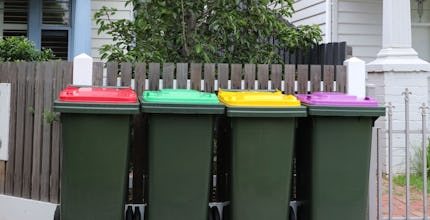In addition to the current yellow recycling bin and red rubbish bin, the new system will provide a purple bin for glass recycling by 2027 and a green bin for food scraps and garden waste by 2030. Local governments like Hobsons Bay City Council and Macedon Ranges Shire Council are leading the way in the roll-out having already introduced new kerbside bins.
Recycling contamination – where different materials are mixed in the collection and sorting process, degrading their quality – has long been a problem in comingled recycling with glass being the main culprit. Glass can easily shatter during collection and contaminate other valuable materials such as paper and cardboard, reducing their quality and ability to be recycled. By separating glass from the comingled recycling bin, larger quantities of paper, cardboard and plastic will be recycled into higher quality materials.
“We know Victorians want to be able to do more to reduce the amount of waste going to landfill and use resources wisely – this new legislation helps to do exactly that. By collecting glass separately, we can make sure more of it is effectively recycled – with jars and bottles transformed multiple times into multiple products,” Lily D’Ambrosio, Minister for Energy, Environment and Climate Change said.
Community engagement and education will be a key focus of the roll-out to help Victorians make the transition and understand the benefits. Sustainability Victoria will provide communication materials based on behaviour change theory and research, allowing councils to focus their funding on advertising and engaging residents. A $127 million fund is available to support councils to buy new bins, improve drop-off facilities, deliver education campaigns and ensure they have the infrastructure in place to roll out the reforms.
These new measures will assist the Victorian Government in achieving its goal to divert 80 per cent of waste from landfill by 2030. According to the Government, providing all residents with access to FOGO (food organics and garden organics) will help divert up to 650,000 tonnes of organic waste away from landfill and boost the state’s economy by up to $6.7 billion by 2030, creating nearly 4,000 new jobs.
The new four-bin system is part of the Victorian Government’s Circular Economy (Waste Reduction and Recycling) Bill, designed to strengthen regulation and oversight of the state’s waste and recycling sector. The bill will be established on 1 July 2022 along with a dedicated government business unit, Recycling Victoria, to oversee and provide strategic leadership for the waste and recycling sector.
Included in the bill are enabling laws for a long-awaited Container Deposit Scheme in Victoria, which will help reduce litter and divert valuable resources from landfill.

Image credit: Victorian Government